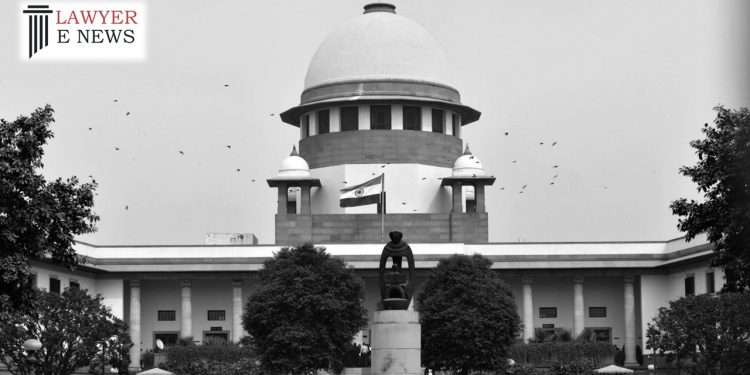Supreme Court: Magistrate Cannot Dismiss Private Complaint Without Scrutinizing Allegations

On May 4th, 2023, the Supreme Court of India passed a significant judgment, in which it held that a magistrate could not dismiss a private complaint without scrutinizing the allegations and determining whether the complaint was baseless or vexatious. The case involved allegations of rape and sexual harassment made by a woman against a man with whom she had been acquainted and worked.
The accused had challenged the magistrate’s order in the high court, which had remitted the matter back to the magistrate for further examination. The accused had then approached the Supreme Court, challenging the high court’s order.
The Supreme Court held that the magistrate could not dismiss a private complaint without examining it judiciously and in accordance with the law. The Court further held that the magistrate had misread the high court’s order, which had directed him to examine the complaint and apply his judicious mind. The Court remitted the matter back to the magistrate for further examination and directed him to decide whether or not to issue directions under section 156(3) or to take cognizance and follow the procedure under section 202 of the Code of Criminal Procedure, 1973. The Court also directed that the magistrate could direct a preliminary inquiry by the police in terms of the law laid down by the Supreme Court in Lalita Kumari v. Government of Uttar Pradesh (2013) 10 SCC 740.
The Court observed that every criminal case is a voyage of discovery, in which the quest for truth is the primary purpose. However, the Court also noted that it is difficult for a woman to come forward and make a statement alleging rape or sexual assault, and that courts must remain alive to this fact while examining the question of delay in making a complaint. The Court further held that the complainant’s conduct and credibility should be examined in cases of delay in filing a complaint.
The Supreme Court also noted that a magistrate has the discretion to send a private complaint under section 156(3) of the Code of Criminal Procedure to the police for investigation. However, when a magistrate chooses not to proceed under section 156(3), he cannot simply dismiss the complaint without scrutinizing the allegations and determining whether the complaint is baseless or vexatious.
Supreme Court affirmed the high court’s order remitting the matter back to the magistrate for further examination and set aside the magistrate’s subsequent order on remand. The Court directed the magistrate to examine and apply his judicial mind and then exercise discretion whether or not to issue directions under section 156(3) or whether he should take cognizance and follow the procedure under section 202. The Court also directed that copies of the papers and documents filed before the high court and the Supreme Court could be forwarded and brought on record of the magistrate, and that the complainant/informant would be entitled to question the genuineness of the contents of the said documents.
On May 4th, 2023
Kailash Vijayvargiya VS Rajlakshmi Chaudhuri and others






